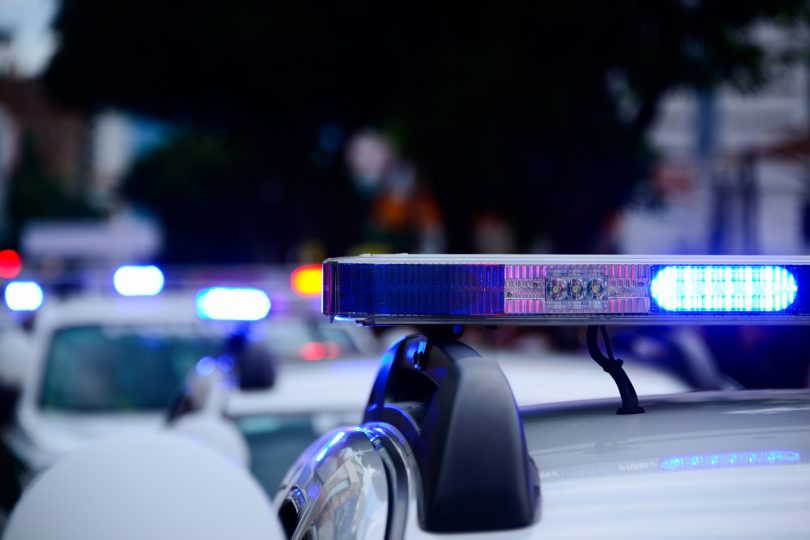By Ashley Barquin
BU News Service
Twenty-five hate crimes were reported in Cambridge last year, according to the Cambridge Police Department’s 2016 Annual Crime Report. It is the largest number recorded in the last decade.
The number of reported hate crimes almost doubled the 15 reported in 2015. According to the CPD report, motivations behind the offenses varied by race (14), religion (five), sexual orientation (four), and ethnicity (two).
And while the numbers have dropped so far this year, police and human rights advocates said they are concerned about the factors that may have led to the trend in a city generally known for its progressive and open-minded residents
Across the United States, hate crimes increased in 2016 with 6,121 incidents reported as opposed to 5,850 reported in 2015, according to the FBI’s 2016 Hate Crime Statistics.
Massachusetts saw a decline in hate crimes, however, from 411 filed in 2015 to 391 in 2016.
Richard Sevieri, the CPD’s strategic analysis coordinator, said the political climate and rise of hate crimes across the country might have triggered the rise of offenses in the city.
“The whole political situation in the country, the election, the amount of protest going on,” Sevieri said in a phone interview. “We had protests four or five different times in the spring and summer of 2016.”
Unlike other police departments, the CPD assigns a staff to “conscientiously capture and classify” hate incidents, which may also be reflected in the 25 incidents recorded in 2016, said Sevieri.
“I wouldn’t say it’s almost a hit or miss, but [other police departments] either don’t have the staff to do it or they don’t classify it,” said Sevieri, who has worked with the CPD for over 30 years.
So far this year, Cambridge has seen fewer hate crimes than last year. Victims have filed 13 reports to the CPD as of Nov. 7, said the strategic analysis coordinator.
Members of the Cambridge Human Rights Commission, created in 1984 to “protect the civil rights of residents and visitors,” according to its website, connect the rise in recorded incidents with the growing awareness of reporting resources.
“I think, after the most recent election, there was more publicity around phone numbers where people could call to report hate crimes,” said Chanta Bhan, the HRC’s chairperson, on Nov. 2 at the commission’s monthly meeting. “There’s increased awareness and increased publicity around reporting mechanisms that make it easier to report.”
Underreporting remains a problem
Despite encouragement for hate crime victims to come forward, 54 percent of hate crimes in the country go unreported, according to the U.S. Department of Justice.
The Anti-Defamation League’s New England regional director, Robert E. Trestan, said he agreed underreporting was an issue. Victims’ fears of identifying themselves and poor law enforcement practices sometimes result in hate incidents going unregistered, he said.
“One of things that we know about hate crimes is that victim impact is much more severe than regular crimes because people are being attacked because of who they are, their skin color, who they love, or what they believe,” Trestan said in a phone interview. “It’s not just an opportunity crime where someone just wants to steal your watch.”
Law enforcement officials should be trained in treating hate crimes as a priority and filing them as biased incidents instead of vandalism so victims feel comfortable coming forward, the ADL’s regional director added.
Potential Hate Crime Prevention Practices
Human Rights Commission members said that communication is crucial to hate crime prevention efforts.
Sabrina Selk, a member of the HRC, said the letters Cambridge Rindge and Latin School faculty sent parents last December after swastikas were drawn in three boys bathrooms demonstrate effective ways to communicate and educate communities on hate crimes.
“I thought it was really great that they didn’t just keep it focused on the high school, but really reached out to the entire public school community to address it and open up conversations,” Selk said. “I think it’s really important to give people a space to talk about these things and issues, and how it affects them directly and indirectly.”
The state took hate crime prevention efforts into its own hands Nov. 6, when Gov. Charlie Baker signed an executive order re-establishing the Governor’s Task Force on Hate Crimes.
The Task Force, initiated by Gov. William Weld in 1991, will meet at least quarterly each year to advise the Governor on the best practices for lowering hate crimes and supporting victims in the state.





